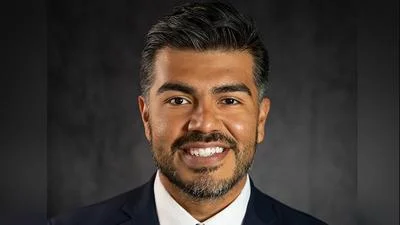Gov. Bruce Rauner said Illinois will be the national leader in mental health services.
Rauner announced the federal signoff of the 1115 five-year waiver that will implement up to 10 new interdepartmental programs at a press conference Monday. Rauner, lawmakers and stakeholders also discussed what they called a truly transformative process in mental health.
“I personally believe this is one of the most important days in the history of public health for the state of Illinois,” Rauner said.

The federal initiative was born from a courtroom battle that began seven years ago in N.B. v Norwood, a 2011 lawsuit filed against Department of Health and Family Services Felicia Norwood that turned into a certified class action complaint by 2014. By 2017, both N.B. and Norwood sought a consent decree seen in the 1115 waiver to resolve the class action and this January an agreement was reached.
Rep. Patricia Bellock (R-Hinsdale) stopped to shake hands with the governor before addressing the crowd at the A Safe Haven Foundation.
“This is the biggest day of my life probably,” Bellock said, adding she has been addressing behavorial concerns for her entire 20-year political career. “This is the most comprehensive transformative amendment that I have ever seen and I think Illinois will be the leader in the rest of the country,” Bellock said.
With changes on the frontline in the five-year waiver program, Rauner said the state will save money and reinvest the funds in mental health services that will benefit toddlers to teenagers who are at high risk for mental health problems.
Lt. Gov. Evelyn Sanguinetti addressed how the 1115 waiver will continue to support the opioid crisis that has claimed 11,000 drug-related deaths since 2008. Sanguinetti said the figure is twice the amount of deaths caused by car accidents and breast cancer.
Though the 1115 waiver will strengthen measures on the life-and-death matter, the lieutenant governor said the state has made great strides in the last two years by implementing a toll-free drug assistance line, restricted doctor shopping and made Narcan, the life-saving drug for treating suspected opioid cases, available to first responders.
Now Medicaid reimbursement will be available for drug treatment, Sanguinetti said, adding peer recovery support programs will help to ensure stronger recovery.
“We will be able in the future to say this epidemic is a thing of the past,” Sanguinetti said.
The 1115 waiver is an answered prayer, according to Neli Vazquez Rowland, co-founder of A Safe Haven Foundation, who said prior to the hope seen in the present program, must drug addicts ended up homeless, incarcerated or dead.
“I cannot thank the governor and everyone on this team enough, because what we are doing today is so incredibly transformative,” Vazquez Rowland said.
Rauner said the many months of hard work between state agencies and programs across Illinois finally paid off with bipartisan support and will benefit Medicaid patients and taxpayers both today and for many years to come.
“We will be able to lower cost and raise quality,” Rauner said of the proactive approach in preventive health services.
Norwood said common ground was found among 12 state department agencies.
“Mental health and behavioral health is something that impacts everyone in our state, it knows no geography young or old,” Norwood said.
The director said Illinois must prove to the federal government in five years they can simultaneously reduce Medicaid costs and improve mental health care through 10 pilot programs that will address substance and opioid use disorder, crisis stabilization and mobilization and supportive housing and employment and intensive in-home services.
“Over the five-year demonstration, we will be bringing in close to $2 billion federal dollars to the state of Illinois to focus on one of the most pressing issues we have in the state,” Norwood said.






 Alerts Sign-up
Alerts Sign-up